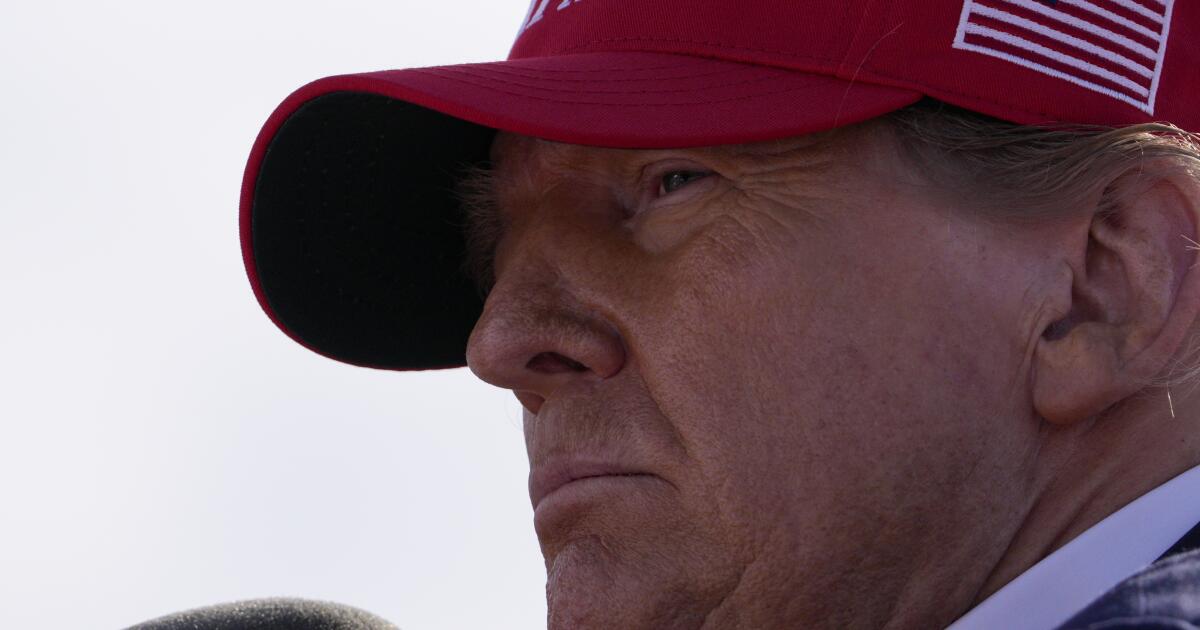During a rally in Ohio on Saturday, Donald Trump made remarks that stirred controversy, particularly his statement suggesting there would be a “bloodbath” if he isn’t elected in November.
Although Trump did use the term “bloodbath,” a closer look at the context suggests a different interpretation. Trump’s remarks seemed to emphasize the potential negative impact on the automotive industry if President Biden were reelected, rather than implying a literal bloodbath on the streets.
However, the media, as is often the case, seized upon Trump’s words and interpreted them in a more ominous light. Headlines such as “Trump says country faces ‘bloodbath’ if Biden wins in November” fueled this narrative.
Trump (Credits: CNBC)
Trump’s defenders argue that the term “bloodbath” is frequently used metaphorically and point to examples such as financial news headlines. Yet, critics counter that Trump’s history of rhetoric, which sometimes flirts with violence and authoritarianism, undermines any presumption of innocent intent.
For instance, Trump has been known to praise acts of violence and has been criticized for his handling of the Capitol riot. His recent characterization of the January 6 rioters as “great patriots” during the Ohio rally further complicates the interpretation of his words.
While some suggest that the media may be overreacting to Trump’s rhetoric, others argue that such reactions are not without basis given Trump’s track record. This dynamic creates a cycle where media scrutiny of Trump’s words often feeds into his narrative of being persecuted by the media.
Despite this, there are concerns that sensationalized coverage may not effectively sway undecided voters who are critical of both Trump and Biden. Instead, focusing on more substantive issues and moments of genuine outrage could have a greater impact.
In the end, Trump’s contentious rhetoric continues to provoke debate and media attention. However, the effectiveness of this attention in shaping public opinion remains uncertain, particularly in a political landscape where distrust of the media runs deep.
